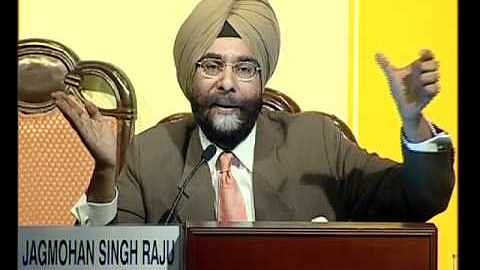New Delhi: Tamil Nadu additional chief secretary Jagmohan Singh Raju, a Dalit IAS officer of the 1985 batch, used to think caste bias was a thing of the past for India. Now, four years after his elevation as additional secretary was allegedly stalled over his Dalit roots, he is spearheading a campaign for justice.
“Everyone used to tell me that it (caste discrimination) will happen someday… But for 25 years in service, I didn’t face it at all,” Raju told ThePrint.
“But, slowly, when competition began increasing for the top positions, I felt I was being pulled down from everywhere,” he said. “Suddenly, there was so much hostility… As though the entire society has decided that people from our community should not rise to the top.”
According to Raju, Central Vigilance Commissioner K.V. Chowdary used completely “arbitrary and discriminatory” means to impede his empanelment as additional secretary back in 2015.
Earlier this month, through his lawyer Prashant Bhushan, he sent a legal notice to the Prime Minister’s Office (PMO) about the “casteist, vindictive and malicious discrimination” allegedly perpetrated by Chowdary, and sought his prosecution under the Scheduled Castes and Scheduled Tribes Act.
The notice was also sent to the Department of Personnel & Training (DoPT), the nodal agency for civil service recruitment.
ThePrint approached CVC Chowdary for comment, but was yet to get a response by the time of publishing. This report will be updated when Chowdary responds.
‘No wrongdoing’
Raju is an IAS officer of the Tamil Nadu cadre, and hails from a Scheduled Caste family based in Punjab.
Explaining how the controversy started, Raju cited some anonymous complaints made against him in 2013. According to him, while the complaints were closed the same year, and it was concluded that the charges were not genuine, Chowdary reopened the inquiry in 2015, just when he was being considered for empanelment.
“Mr Chowdary… ordered a fresh inquiry into them just to create a pretext to decline me the vigilance clearance,” he said to ThePrint. “Even the fresh inquiry under his own superintendence found no wrongdoing on my part and exonerated me unconditionally,” he added.
Even though the National Commission for Scheduled Castes (NCSC) recommended back in 2016 that “that the petitioner has been grossly discriminated against and victimised”, the government did not take any action on his complaint.
Raju was compelled to take the matter to the Delhi High Court in 2017, and, in December 2018, the court directed that a decision be taken upon the findings and recommendations of the NCSC within two months.
When the government did not act against Chowdary despite the high court’s directions, Raju wrote to the PMO and the Department of Personnel & Training this month.
More than two weeks later, there is no word from the government on Raju’s notice. “While the government retains its prerogative to take decision on the notice…I shall evaluate (the future course of action),” he told ThePrint.
Also read: This madrasa graduate is in line to be IAS, IPS officer, says it helped him crack UPSC exam
‘Thought caste bias was a thing of the past’
Raju, who topped his BA (Honours) batch at Panjab University, became an IAS officer at the age of 22. At the time, he told ThePrint, he was a sceptic about caste discrimination, and believed education and modernity had made it a thing of the past.
Asked if he felt that caste-based discrimination was widespread in the bureaucracy, he said, “There is a reason why there are such few officers from the SC community at the secretary-level in the government.”
According to details obtained by ThePrint through an RTI application last year, there are 81 secretary-rank officers in the central government, of which only two are from the Scheduled Castes and three from the Scheduled Tribes.
The reason usually offered for the under-representation of the Scheduled Castes at secretary-level is that, because of the reservation and extra attempts they get to crack the civil services exam, people from the community join the service late and retire before they can rise through the ranks, Raju said.
“But in cases like mine, where I joined the service early, some other excuses are made for not granting promotion,” he added.
While Raju’s batch got empanelled for the post of secretary, the top-most level of the civil service hierarchy, in 2017, he is yet to be elevated as additional secretary, a rank lower, despite “an outstanding record”.
A PhD in public policy from the Tata Institute of Social Sciences, Mumbai, and a Visiting Fellow at Cambridge University, UK, Raju has been awarded by UNESCO with the King Sejong Literacy Prize for his exemplary work in spreading literacy among 2.5 crore non-literate adults.
“I think people realised that if I got empanelled in 2017, I would have had five years in service as secretary to government of India… And people don’t want anyone from our community to be in that position,” he said. “Discrimination is under covers…People don’t talk freely about it. But it’s there.”
Also read: IAS officer suspended for checking Modi’s chopper is a vocal critic of govt
